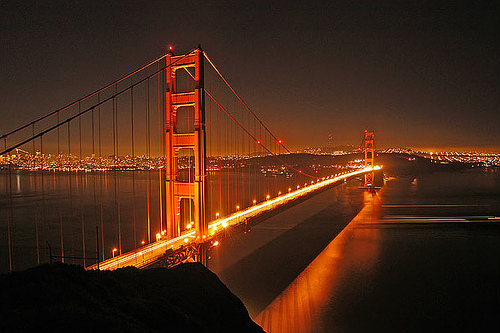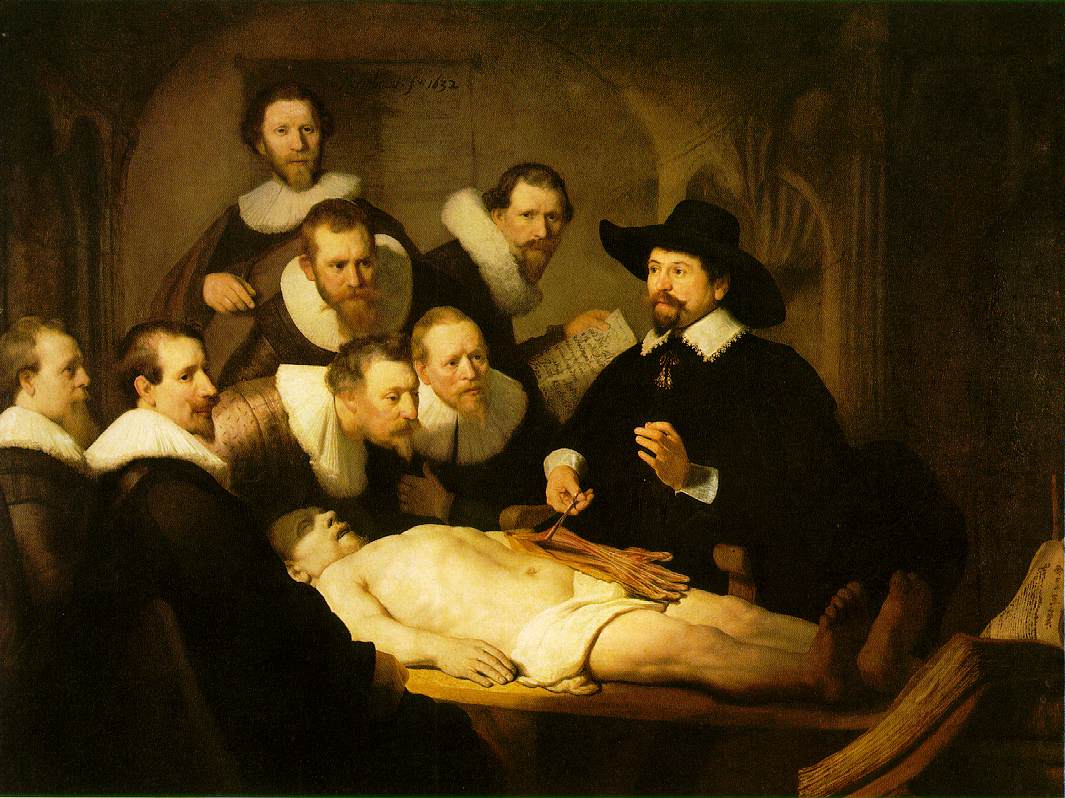 Last week I had the pleasure of having Gabe Gudding up to Lake Forest to talk to my Modern Poetry students and give a reading. I'd recommend him to any teacher and any class anywhere. One of my students marveled afterward about how unpretentious he is. Both in conversation and in the reading he was a quiet, yet commanding presence, the best imaginable soft advocate for his own work. At least three of my students wrote or are writing pieces inspired by him and Rhode Island Notebook in the wake of his visit, and it's some of the best writing they've done all semester.
Last week I had the pleasure of having Gabe Gudding up to Lake Forest to talk to my Modern Poetry students and give a reading. I'd recommend him to any teacher and any class anywhere. One of my students marveled afterward about how unpretentious he is. Both in conversation and in the reading he was a quiet, yet commanding presence, the best imaginable soft advocate for his own work. At least three of my students wrote or are writing pieces inspired by him and Rhode Island Notebook in the wake of his visit, and it's some of the best writing they've done all semester.But I come not to praise Gabe but to bury him, or rather to contemplate his own flirtation with the limits of poetry. We were all struck by his admission in the class that he often doesn't like or feels embarrassed by his old work—something most writers can surely relate to—but during the Q&A after the reading he went further and told us that he doesn't read much poetry any more and doesn't really like or trust it. "I want poetry to be useful," he said, and said he was moving away from beautiful language and metaphors (things he clearly loves and which come naturally to him as the leaves to a tree) toward simply presenting the things he finds in the world—an Objectivist-inluenced stance. The example of the new style that he presented was an section from his horological essay, "Praise to the Swiss Federation," a portion of which was excerpted in Harper's. I took this piece for a poem in the spirit of Christopher Smart, but Gabe calls it an essay, and as such evidence of his move away from poetry and, it would perhaps not be too much to say, an expression of his unease with the literary as such.

Given my obsession with Roberto Bolañno, it was natural for me to connect Gabe's unease with the central quality of Bolaño's greatness, as asserted by the clever boys at n plus one, following up their own Benjamin Kunkel's review of The Savage Detectives that first appeared in the London Review of Books. There Kunkel wrote, "Here is a writer, then, who writes as if literature were all that mattered, and at the same time writes in a distinctly unliterary way." The collectively authored n plus one piece goes further, comparing Bolaño or at least his similarly sudden canonization to W.G. Sebald (have they been reading my blog?) and saying of both authors, "neither fiction writer writes as if he believes in fiction. Our canonization of these writers implies a sense, even a conviction, that you can't be a really important novelist anymore unless you can't really write novels" (italics original).
We have overshot, then, the hermeneutics of suspicion that characterized "theory" in the 1970s to arrive at a poetics of suspicion: only literature that puts the very premises of the literary into question can now summon the aesthetic impact we associate with great literature. This may represent the most complete assimilation by authors of the skeptical stance that diffused itself in the last universally acknowledged great wave of postmodern fiction (Pynchon, Delillo, Coover) and poetry (Ashbery, Ashbery, Ashbery). Now it's not merely literary strategies that are picked apart and turned around through unreliable narrators, disordered chronologies, the blurring of fact and fiction, extreme parataxis, etc. It's the literary itself, the summoning and deployment of aesthetic effects, summarized in the phrase "beautiful language." It's like the avant-garde attack on art as an institution, but the spirit is less merry prankster than Beckettian: I can't go on writing, I'll go on writing. Which tone makes me wonder if this new anti-literary strategy isn't just modernism through the back door, since it's modernism's aura of mournful remembrance that most superficially distinguishes it from the products of postmodernism.
 The only problem with this thesis is that it isn't really true. Sebald's work first shocked readers with its apparently artless photographs and endless paragraphs, but in recollection the work is nearly limpid, its melancholy polished to a high gleam. If Sebald's writing drew sighs of longing from its American readers, that had less to do with a sense of liberation from the literary than it provided a frisson of contact with a culture and history and tragedy that seemed far weightier and more substantial than ours during the decade of his American emergence. He seems less strange and more realistic in post-9/11 America, with his endless search for lost people, lost time, lost atmospheres. As for Bolaño, I suspect the artless, "lurid and flat" storytelling we accuse him of now will become not the surface to be broken by the diving reader in search of deeper, more duende-like qualities; instead, it will eventually be seen as the very thing that attracts us and which marks his writing as literary: that is, language hijacked on the road to representation by the very starkness and strangeness of the real that infiltrates and suffuses the work of Sebald and Bolaño alike. Or to put it another way, this is writing that doesn't pretend to understand the strangeness of life but lets it unfold, never shaped in any form save by storytellers who don't disguise both their interest in and their lack of control over the outcome. Sebald did this monologically; Bolaño's major innovation is his dialogism, as seen in the innumerable narrators of The Savage Detectives. None of them has a handle on the truth, but collectively they present us with the restless search for truth, for a truth that can account for the fate of the novel's antiheroes on every level: social, economic, juridical, literary, geographical. From what I've read of 2666 he pursues a similarly dark and heteroglossic investigation, one with far more chilling consequences in its irresolution.
The only problem with this thesis is that it isn't really true. Sebald's work first shocked readers with its apparently artless photographs and endless paragraphs, but in recollection the work is nearly limpid, its melancholy polished to a high gleam. If Sebald's writing drew sighs of longing from its American readers, that had less to do with a sense of liberation from the literary than it provided a frisson of contact with a culture and history and tragedy that seemed far weightier and more substantial than ours during the decade of his American emergence. He seems less strange and more realistic in post-9/11 America, with his endless search for lost people, lost time, lost atmospheres. As for Bolaño, I suspect the artless, "lurid and flat" storytelling we accuse him of now will become not the surface to be broken by the diving reader in search of deeper, more duende-like qualities; instead, it will eventually be seen as the very thing that attracts us and which marks his writing as literary: that is, language hijacked on the road to representation by the very starkness and strangeness of the real that infiltrates and suffuses the work of Sebald and Bolaño alike. Or to put it another way, this is writing that doesn't pretend to understand the strangeness of life but lets it unfold, never shaped in any form save by storytellers who don't disguise both their interest in and their lack of control over the outcome. Sebald did this monologically; Bolaño's major innovation is his dialogism, as seen in the innumerable narrators of The Savage Detectives. None of them has a handle on the truth, but collectively they present us with the restless search for truth, for a truth that can account for the fate of the novel's antiheroes on every level: social, economic, juridical, literary, geographical. From what I've read of 2666 he pursues a similarly dark and heteroglossic investigation, one with far more chilling consequences in its irresolution.Which takes me back to Gabe, whose Rhode Island Notebook already shows signs of the anti-literary, hyper-literary stance he now wants to take toward poetry. In its seemingly artless, scatological, essayistic progress, the book picks up and discards language both lyrical and mundane, sometimes sadistically so, reckoning experience through that simplest and most flexible of narratives: there and back again, anabasis-katabasis. So when Gabe talks about wanting to somehow move beyond poetry, yet in poetry, I want to send him one of those old Publishers Clearing House envelopes that says YOU MAY ALREADY BE A WINNER. And I wonder what his model may have to teach me in my own moment of revulsion (too strong: recoiling? re-collection?) against my own literary DNA, my own restless distrust of the beautiful language I seem so badly to need.
























